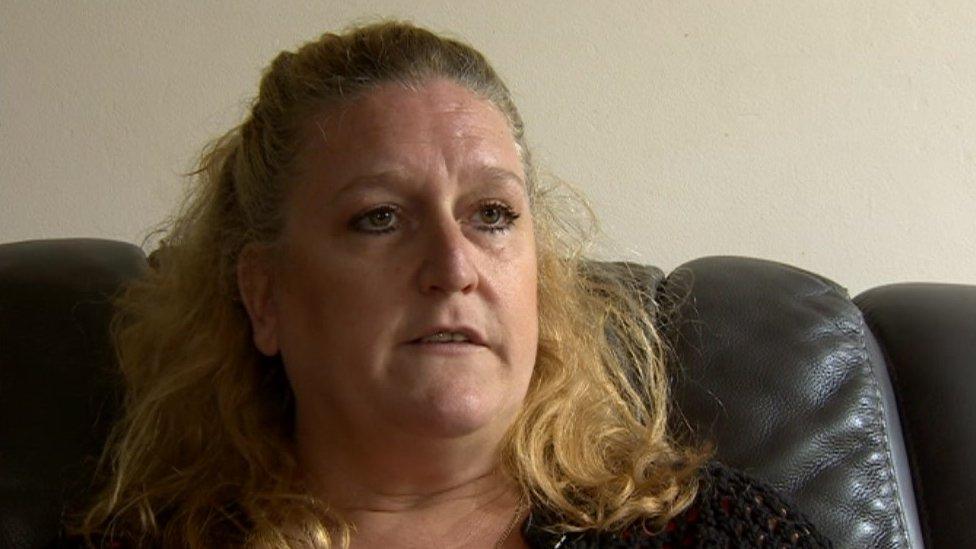Colneyvirus: New virus named after Norfolk village of Colney
- Published
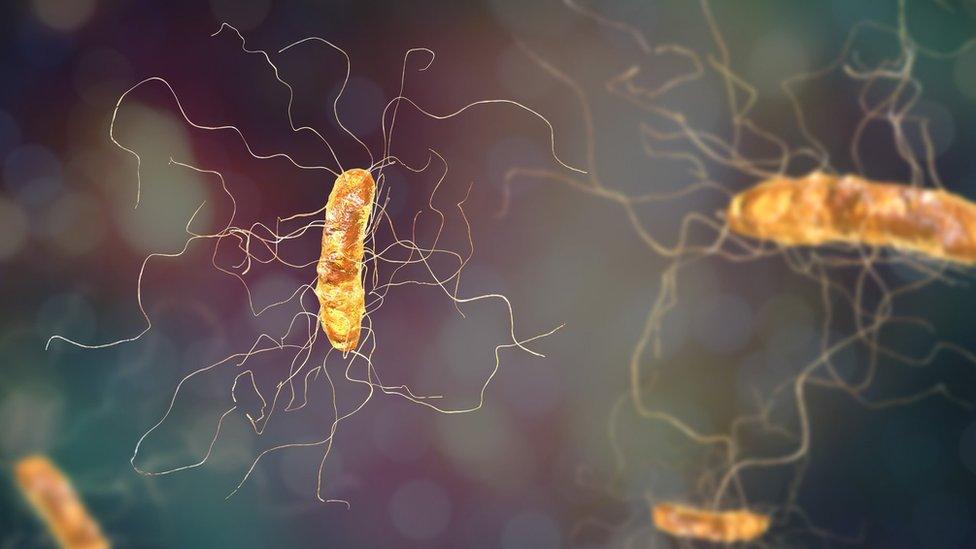
C.diff infections have been a major problem in hospitals around the world
A new virus that could be beneficial to humans has been named after the village in which it was discovered.
Scientists working at the Institute of Food Research in Colney, near Norwich, said the Colneyvirus could treat potentially deadly Clostridium difficile (C. diff) infections.
C.diff infections can cause diarrhoea and fever.
It is hoped the Colneyvirus could form part of treatments to combat C.diff after further research is done.
C. diff bacteria infects the bowel, most commonly during a course of antibiotics, according to the researchers based at Norwich's Quadram Institute.
The Colneyvirus is a bacteriophage, a type of virus that infects bacteria, and is also known as a bacteria eater.
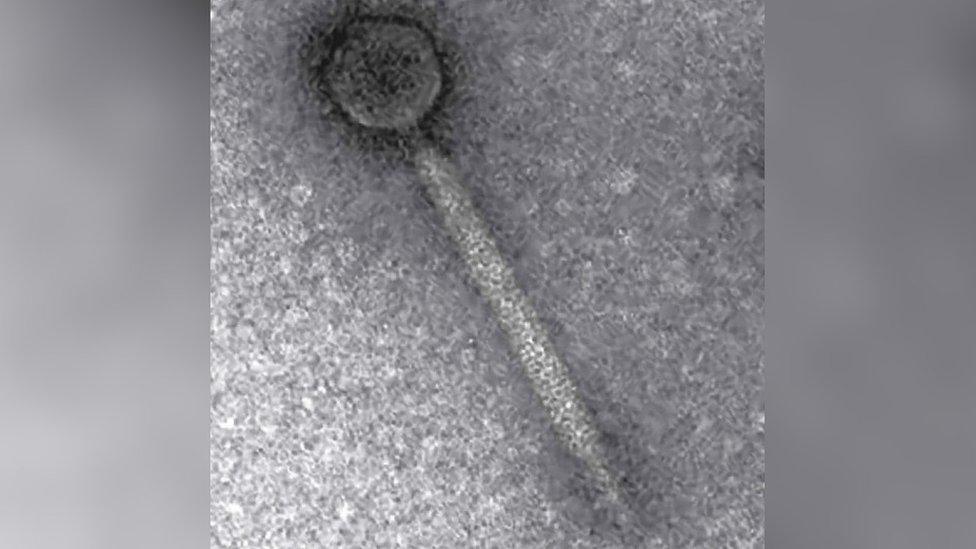
Clostridioides virus phiCD27 of the genus colneyvirus - the phage is about 300nm long, meaning about 200 would fit across the width of an average human hair
The researchers said the new Colneyvirus could be "potentially lifesaving", external.
Members of the International Committee on Taxonomy of Viruses (ICTV) decided the new virus was genetically distinct enough to form a new genus of bacteriophages and so they named it after the village of Colney.
Allow X content?
This article contains content provided by X. We ask for your permission before anything is loaded, as they may be using cookies and other technologies. You may want to read X’s cookie policy, external and privacy policy, external before accepting. To view this content choose ‘accept and continue’.
Dr Evelien Adriaenssens, chair of the ICTV's bacterial viruses subcommittee, said: "We always look to honour people, places or institutes involved in the first description of a new group of phages.
"It feels fitting to name the genus after Colney, where so much excellent science is performed."
Although the parish of Colney only has a population of only about 120 people, it is home to a number of research institutes and the Norfolk and Norwich University Hospital.

Find BBC News: East of England on Facebook, external, Instagram, external and Twitter, external. If you have a story suggestion email eastofenglandnews@bbc.co.uk, external
Related topics
- Published30 July 2021
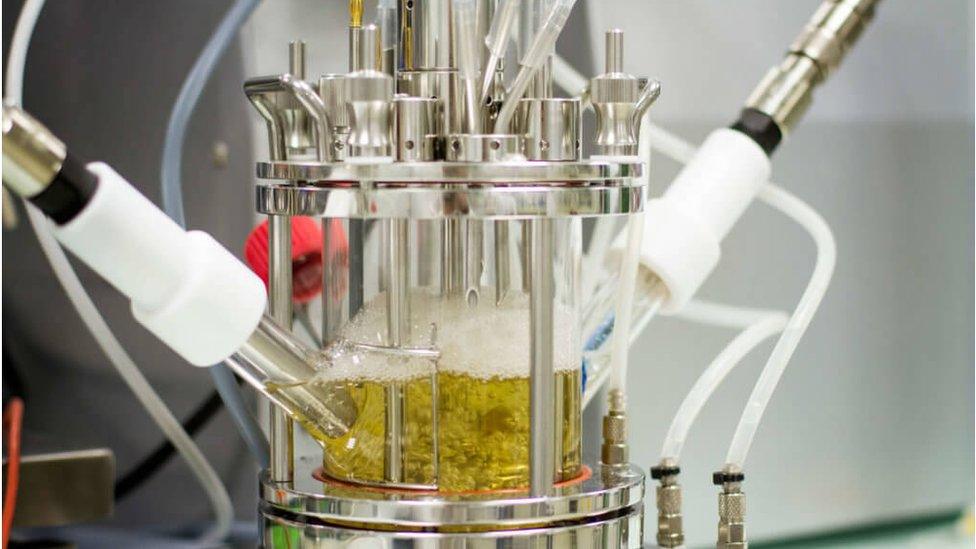
- Published13 September 2018
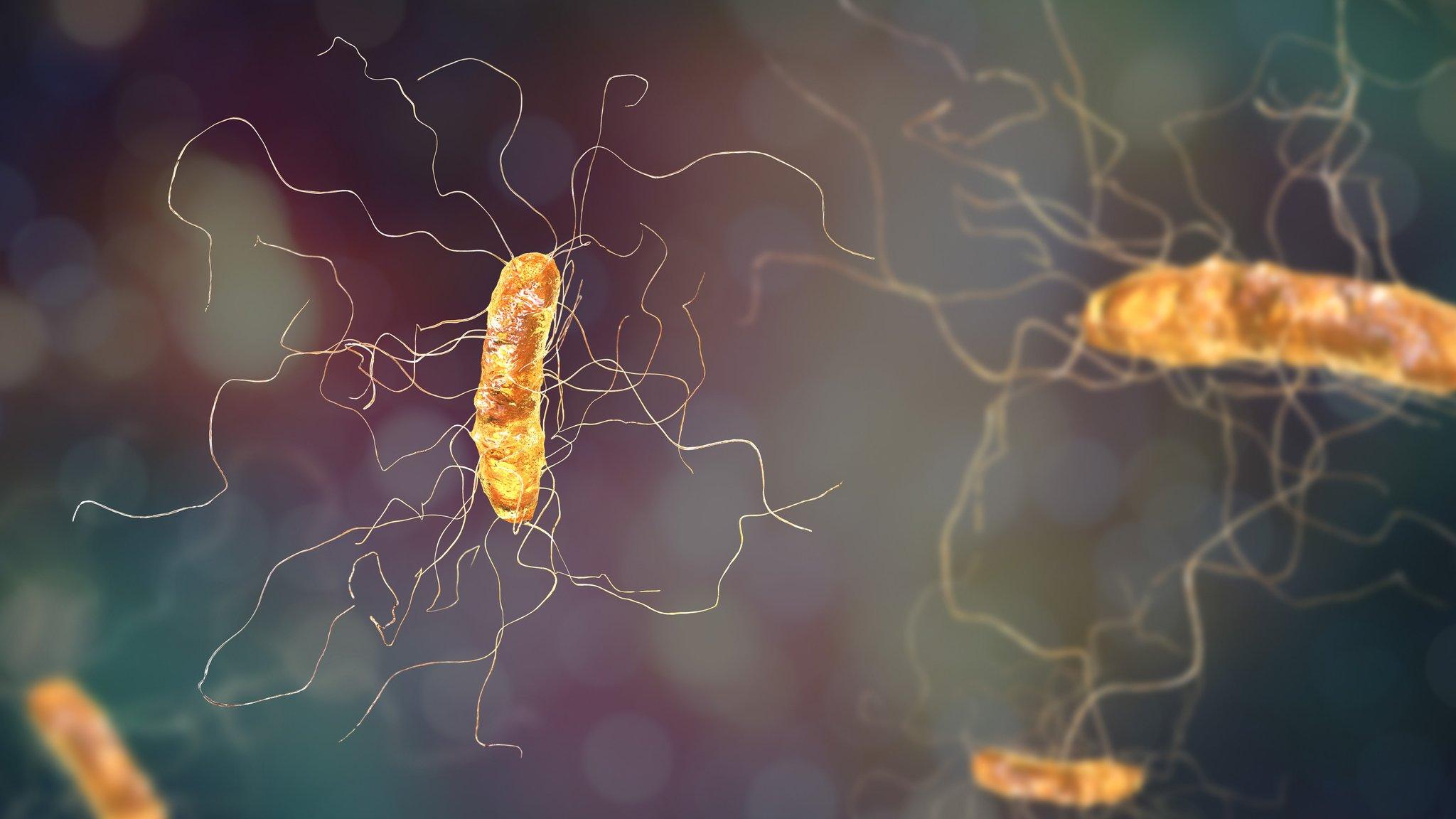
- Published22 July 2015
